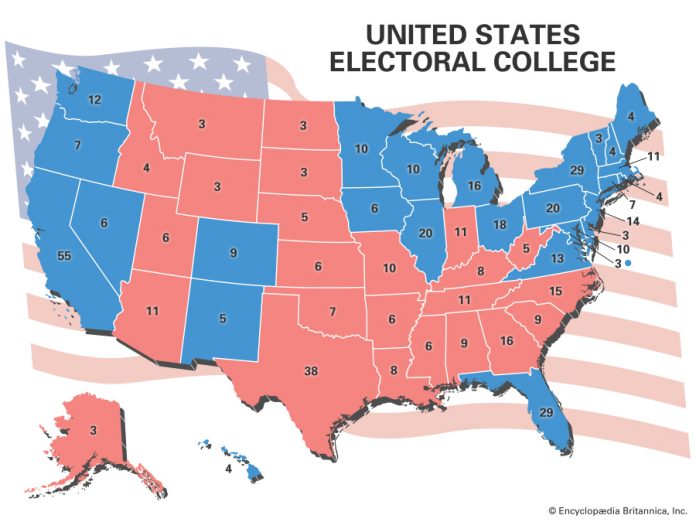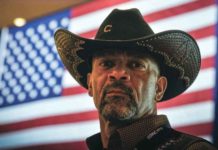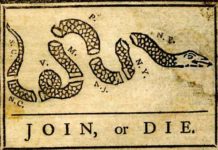There is this false narrative floating around that the electoral college and/or the Senate was created to protect slavery – that slave owning states could never have won the popular vote.
I looked at the 1790 US Census to see if that is true.
If we look at the number of adult white men (the voters of the day) in 1790, by state, adding up all of the voters in slave holding states, and non-slave states, we get 178,358 voters in non-slave states, and 628,736 voters in slave holding states.
And it is actually worse than that. New Jersey, for example, allowed all free adults to vote, including women and free African Americans. New Jersey was at the time a slave state, not banning the aquisition of new slaves until 1804, and not emancipating current slaves until 1865.
That’s right – New Jersey allowed slavery until 1865, when the Civil War ended. Google it if you think I am making that up.
New York did not end slavery until 1827 (with a bill that passed in 1817 but that allowed slavery to continue for ten years to give slave owners ample time to sell their slaves to people in states that were not banning slavery).
At the time the Constitution was ratified, only four states – Maine, Vermont, New Hampshire, and Massachusetts – were non-slave states. The rest of the North got rid of slavery over time, between the passage of the Constitution and the outbreak of the Civil War. And even that is not entirely true, as several slave states stayed in the Union when the Civil War broke out. Delaware and Kentucky did not even end slavery during the war, in spite of being on the side of the North.
Maryland, Missouri, Tennessee, and West Virginia (which broke off from the rest of Virginia to stay in the Union) were slave states at the onset of the war, but ended slavery during the war.
In total, five slave holding states, and part of a sixth (which became a state) fought on the side of preserving the Union.
At the time the Constitution was ratified, voters from slave holding states outnumbered voters from non-slave states by more than 3.5 to 1, so the notion that the electoral college and/or the Senate was created to protect slavery from the majority vote is not only wrong, but absurd.
And all it takes to see that is to look at the 1790 US Census.
Much of the American public is developing this ultra simplistic, ‘us vs them’ or ‘good vs evil’ view of history, but it just is not that simple. History is nuanced. The history of slavery in America is in some ways better than the popular narrative says, and in other ways much worse.
It is the same with the Civil War. Up until Fort Sumter was fired upon by students at the Citadel in South Carolina, secession was 100% about slavery. Every state that seceded before Fort Sumter listed slavery as the reason, and slavery is inexorably and inseparably linked to the Civil War.
But a number of Southern states, including Virginia, did not secede until after Fort Sumter. In the case of Virginia, it was Lincoln’s act of creating an army, with the express purpose of invading the South, that caused secession, and even then it was not a foregone conclusion that Virginia would secede. Lincoln’s first choice to lead the Union Army was none other than Robert E. Lee.
The movie Gods and Generals accurately portrays Lee’s remarks in turning Lincoln down (through one of Lincoln’s advisors – Francis Blair). Lee said, “I never thought I would live to see the day when an American President would raise an army to invade his own country. No, Mr. Blair, I cannot lead it. I will not lead it.”
Lee did not lead the Army of Virginia to preserve slavery, but to repel what he viewed as an invading Army. Both Lee, as well as his right hand General, Thomas ’Stonewall’ Jackson, were in favor of the Confederacy ending slavery, to encourage England to enter the war.
Note that had the Confederacy taken Lee and Jackson’s advice, the only slave states would have been Delaware, Kentucky, Maryland, Missouri, Tennessee, and West Virginia – all of which were fighting on the side of the North. What would the history of the Civil War look like today, had that happened?
England, incidentally, had already banned slavery throughout its empire, and was using the weight of its vast empire to wipe out slavery throughout the rest of the world. In spite of that, England was on the side of the South.
Lincoln using Francis Blair to relay his desire for Lee to lead the Union Army is particularly telling of the complexities and nuances of the time. Blair himself had been a slave owner, before turning against slavery and founding the Republican Party.
Prior to a political fallout between Andrew Jackson and Francis Blair over the expansion of slavery (as the nation expanded West), both men were members of Jefferson’s ‘Democratic Republicans.’ Andrew Jackson founded the Democratic Party, in favor of expanding slavery, and Francis Blair founded the Republican Party, to fight the expansion of slavery, with an eventual eye toward ending it. The names of the parties were telling – those who wanted slavery wanted a more direct democracy (they had the popular vote at the time), and those who wanted to end slavery wanted to focus on the rules of the Republic (with a Senate and an Electoral College).
I get sick and tired of these totalitarian, simplistic views of history. Much of the learning is found in the nuance.
In this case, even without nuance, the notion that the Electoral College, and/or the Senate, were created to preserve slavery, is patently absurd.
And as we all know, those who fail to learn from history are doomed to repeat it…

























Note: The article should have placed The Citadel in South Carolina.